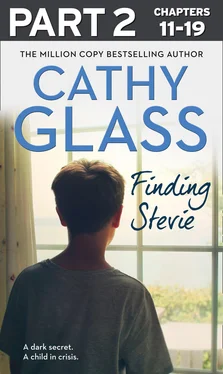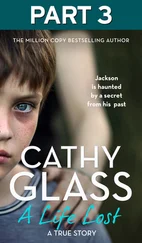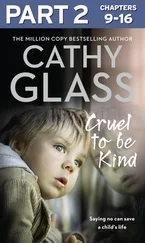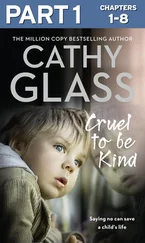Twenty minutes later the duty social worker returned my call. The duty social worker doesn’t usually know the child, so I had to give him Stevie’s background information, which he noted, including Stevie’s date of birth, the reason he was in care, the type of care order and the circumstances leading up to him going missing. I explained what had happened at school and that he hadn’t been in touch since – either with me or with his grandparents. He advised me to leave another message on Stevie’s mobile saying that I had spoken to him, and that if he didn’t return home or contact me by 7 p.m. then I would have to report him missing to the police. The mention of the police sometimes prompted the young person to get in touch, then, with the barrier they’d erected around themselves lowered, it usually became easier to open the line of communication and for them to return home. He said I should telephone him to let him know the outcome.
Increasingly concerned for Stevie, I followed the duty social worker’s instructions and called Stevie’s mobile again. It went through to voicemail, so I left a message: ‘Stevie, it’s Cathy. I’m worried about you, love. Can you phone or text me, please, to say you’re OK? Whatever the problem is, I am sure we can sort it out. I’ve just called the duty social worker and he told me that if you haven’t got in touch by seven o’clock I should report you missing to the police. Come home, love, please, we miss you.’ I ended the call. It was dark outside now and bitterly cold, and I was worried Stevie was out there somewhere alone and, for whatever reason, too scared to come home.
Adrian came downstairs. ‘Shall we go out and look for him, Mum?’ he asked.
I was touched. ‘That’s nice of you, but I wouldn’t know where to start looking.’ I’d done similar before when a young person had gone missing, but then I’d had an idea of where they might be as I knew who they associated with and what their favourite haunts were (for example, Joss in Girl Alone ). Now I had no idea where Stevie might be, and neither did his grandparents.
Adrian nodded. ‘Try not to worry. I’m sure he’ll be back soon.’
I smiled weakly, for, as Adrian knew, with every passing minute our concerns would grow.
At seven o’clock, with no word from Stevie and following the duty social worker’s advice, I telephoned the police – not 999 (the emergency services number) as I would have done if a small child had gone missing, but our local police station. Once connected, I explained to the officer that Stevie, aged fourteen, was a looked-after child, that I was his foster carer and the circumstances surrounding him going missing. Of course he wanted to know if he’d gone missing before and I explained that he had when he’d lived with his grandparents, but not since he’d been with me. He asked for a description and what Stevie was wearing – his school uniform – if he had any health issues or if he was depressed or suicidal. I said he’d been quiet the previous week, which had made me think something was worrying him, but I didn’t think he was suicidal, although of course you can never be sure. The officer wanted the name and contact details of Stevie’s social worker and his grandparents. I had them ready. He said he’d send an officer to my house as soon as one became available, and in the meantime Stevie’s details would be circulated through the police computer. He told me to have a recent photograph of Stevie ready to give to the police, which I also knew. I always made sure I had at least one good photo of the child I was fostering for official use, in addition to family photographs of the child’s time with us, a copy of which the child kept to remember us by.
I thanked the officer and felt some relief that the police were now looking for Stevie.
A few minutes later Adrian came into the living room with his coat on. ‘I’m going to walk around the block and up to the High Street to make sure Stevie’s not in the area and worried about coming back.’
‘Thanks, love, that is kind of you.’
‘It’s better than doing nothing,’ he said.
Then Lucy and Paula appeared, slipping on their coats. ‘We’re going too.’
Tears sprung to my eyes; I was so moved by their thoughtfulness. ‘Thank you. Don’t be too long, though. I don’t want you getting cold.’ Although it was early March, the temperature at night was dropping to freezing. ‘I’ll wait here for the police to arrive. I’ll call you if Stevie comes home.’
Yet while I appreciated their concern, the fact that they were going out to look for Stevie seemed to heighten the seriousness of what was unfolding. I still hoped that Stevie would breeze in shortly as Fred said he’d done when he’d gone missing before, but as time passed I thought it less and less likely.
By 8.30 I was starting to worry where my three children were, and was about to phone one of their mobiles when Adrian texted to say they’d got delayed and were now on their way back, although they hadn’t seen Stevie. As soon as I heard the front door open I was in the hall to meet them.
‘You must be freezing,’ I said. ‘You’ve been gone ages.’ They looked cold.
‘We helped a guy in the High Street,’ Adrian explained as they took off their coats.
‘Mum, did you know there’s a man sleeping rough in the High Street?’ Paula asked, shocked.
‘No, I didn’t.’ Although I was aware the number of rough sleepers in the country was increasing.
‘He’s in a doorway in an old sleeping bag,’ Paula said. ‘We bought him sausage and chips and a cup of tea.’
‘That was kind of you.’
‘He wasn’t very old,’ Lucy added. ‘I’d guess mid-twenties. I asked him why he was there and not with his family, but he wouldn’t talk to us.’
‘I’m sure he appreciated the food and drink,’ I said.
I feel it’s a disgrace and a dreadful indictment of our society that anyone has to sleep rough. It’s a sad fact that a sizeable proportion of those sleeping rough are care leavers. Looked-after children leave care at eighteen and then receive some support until they are twenty-one (longer if they are in education or training). During the transition to independence they are usually put in a hostel, lodgings or a small council flat, then they are on their own. With little or no family support, they often struggle to pay their bills. They fall behind with their rent and are eventually evicted. One recent study showed that 25 per cent of homeless people in the UK have been in care, and 20 per cent of care leavers become homeless within five years of leaving care. Shocking statistics.
Peggy telephoned and I told her I’d reported Stevie missing and was waiting for the police to arrive, and that Adrian, Lucy and Paula had checked the local area. She thanked me and began to tell me all about what had happened when Stevie had been living with them and gone missing, reliving it, when the front doorbell rang – two firm rings.
‘Peggy, I have to go,’ I said, interrupting her. ‘I think the police have arrived.’
‘Tell them if they want to search my home they need to wait until morning – the kids are in bed. Last time they woke them.’
Saying a quick goodbye, I went into the hall just as Adrian was opening the front door.
Chapter Twelve
Adrian and I showed the two male police officers into the living room and we all sat down. Lucy joined us, but Paula stayed in her room. The lead officer asked me questions as the other officer took notes: about his background, the reasons for him coming into care, how long he’d been living with us, the events leading up to his disappearance and so forth, much as I’d already given when I’d reported Stevie missing. I appreciated Adrian and Lucy being present. When they were young, as a single-parent foster carer I’d had to face situations like this alone. Now they were older it was reassuring to have them by my side for moral support and also to supplement details I might have missed. I told the officers what steps we’d taken to find Stevie, including leaving messages on his mobile, contacting his grandparents and that Adrian, Lucy and Paula had looked for him in the area.
Читать дальше












